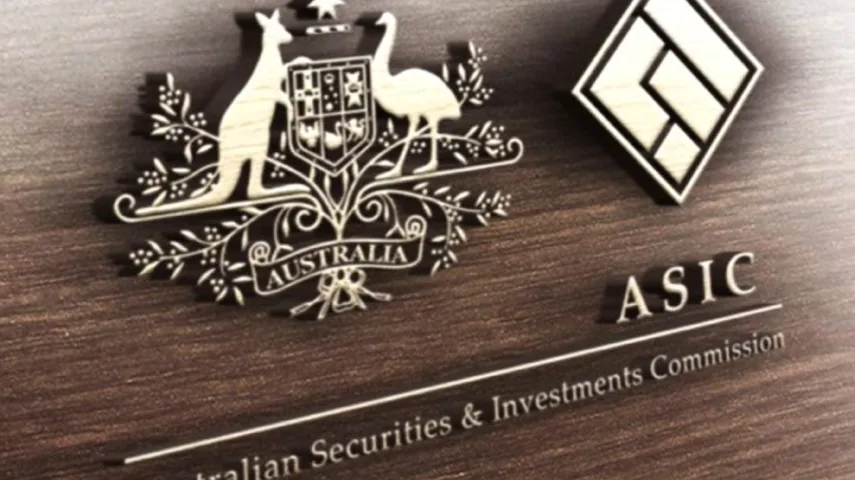ASIC confirms fees for no service still problematic issue



Despite paying billions in remediation, ASIC believes fees for no service is still an issue in the financial services space.
Appearing before the Senate estimates, the regulatory body was asked by Senator Malcolm Roberts about whether fees for no service was still problematic after the compensation.
Some $4.7 billion was paid out by institutions following the royal commission, mostly by AMP, ANZ, Commonwealth Bank, Macquarie, NAB and Westpac.
Fees for no service is a key focus of the Hayne royal commission, which concluded five years ago this month, including the extent of failure by the institutions to deliver ongoing advice services to financial advice customers who were paying fees to receive these services.
Responding to the question, chair Joseph Longo, said: “It’s a truism that systems and processes at the banks are always in need of improvement and enhancement so we can never be certain that those systems have been fixed forever. But lots of progress has been made coming out of the royal commission.”
Referencing the $4.7 billion figure, deputy chair Sarah Court declined to comment whether it matched the amount that firms had received in fees, but that it was an “eye-watering” figure.
She added: “We can never presume to say that the issue of fee for no service or compliance and legacy systems has been completely fixed. There’s been progress made, there’s been billions of dollars of remediation paid, and there’s also been penalties applied by courts in relation to that conduct.
“But we continue to have cases where fees for no service are being alleged, and we continue to investigate them and take court action where it is appropriate.”
These penalties include two actions at the end of 2023 against Mercer Financial Advice and against OnePath Custodians.
OnePath Custodians was ordered to pay $5 million by the Federal Court for making false or misleading representations about its right to continue charging fees, and for failing to provide services to members efficiently, honestly and fairly due to its misleading conduct and by deducting fees when not entitled to do so.
Meanwhile, Mercer Financial Advice was penalised $12 million for charging fees to customers it was not entitled to charge and failing in its fee disclosure obligations.
Recommended for you
Equity offerings should be “seriously considered” by advice firms if they want to attract experienced advisers with the option viewed as a major differentiator for candidates seeking their next role.
DASH Technology Group has enacted two internal promotions, appointing a chief risk officer and chief commercial officer to strengthen the firm’s governance and operational capabilities.
The Stockbrokers and Investment Advisers Association has announced the appointment of its new chief executive following the exit of Judith Fox after six years.
Insignia Financial has appointed an experienced financial advice leader as head of education and advice on its Master Trust business, who joins from Ignition Advice,












ASIC should focus on "real" issues. Fee for no service is a confection of an egotist - Hayne.
ASIC needs to pay more attention to the construction sector and builders going bust and taking money from clients and subcontractors. Some of the guys are serial rogues. Also what about suspect floats and the money lost there.
My contention is that in the vast majority of cases no real loss was incurred in this "fee for no service " fantasy. Certainly not the billions paid out.
ASIC's attitude and approach is all about going for good media coverage to mask their incompetence or lack of drive in their core role.
ASIC should be concerned about Fees for No Service, pity they did nothing about it for the 10 years pre RC that they new about the problem.
Hey ASIC, how much are Industry Super pocketing via HIDDEN COMMISSIONS from their members for their Call Center Sales Staff / Intra Fund Advice ?
Hey ASIC, what % of Industry Super Members are paying HIDDEN COMMISSIONS for NO Service ?
Talking about fees for no service, I have to pay a significant annual fee to ASIC as a registered financial adviser, BUT, because I am running my financial advice business as a part-time side-gig I have NO clients (so far), so am paying ASIC a hefty annual fee to NO SERVICE (since there is nothing to 'supervise' or 'review' when I have no clients receiving personal financial advice!). How about checking yourself ASIC? ps. I sent feedback about this years ago (suggesting they charge a fee per SOA rather than a blanket annual fee per registered adviser, and ASICs response was that they don't keep track of how many SOAs each registered adviser does each year -- how is that for totally careless and pointless 'supervision'
ps. I am all in favour of advisers getting in trouble if they charge an ongoing fee to 'clients' that they don't even provide a service to each year, but that could easily be eradicated by advisers only being able to charge clients an annual fee for the coming 12 months, and not have the problematic 'ongoing fee' rigamarole. ASIC (and the ATO) are always looking for the most impractical, costly, and self-serving (levy increasing) way to 'supervise' the financial advice profession.
Take note that this is a product provider issue (again). With clients needing to opt-in to a fee agreement every year, it is impossible to be a financial adviser problem.
Why then is Labor and Stephen Jones making the financial advisers pay their compensation scheme of last resort tax, and not the product providers who are the ones who cause the problems?